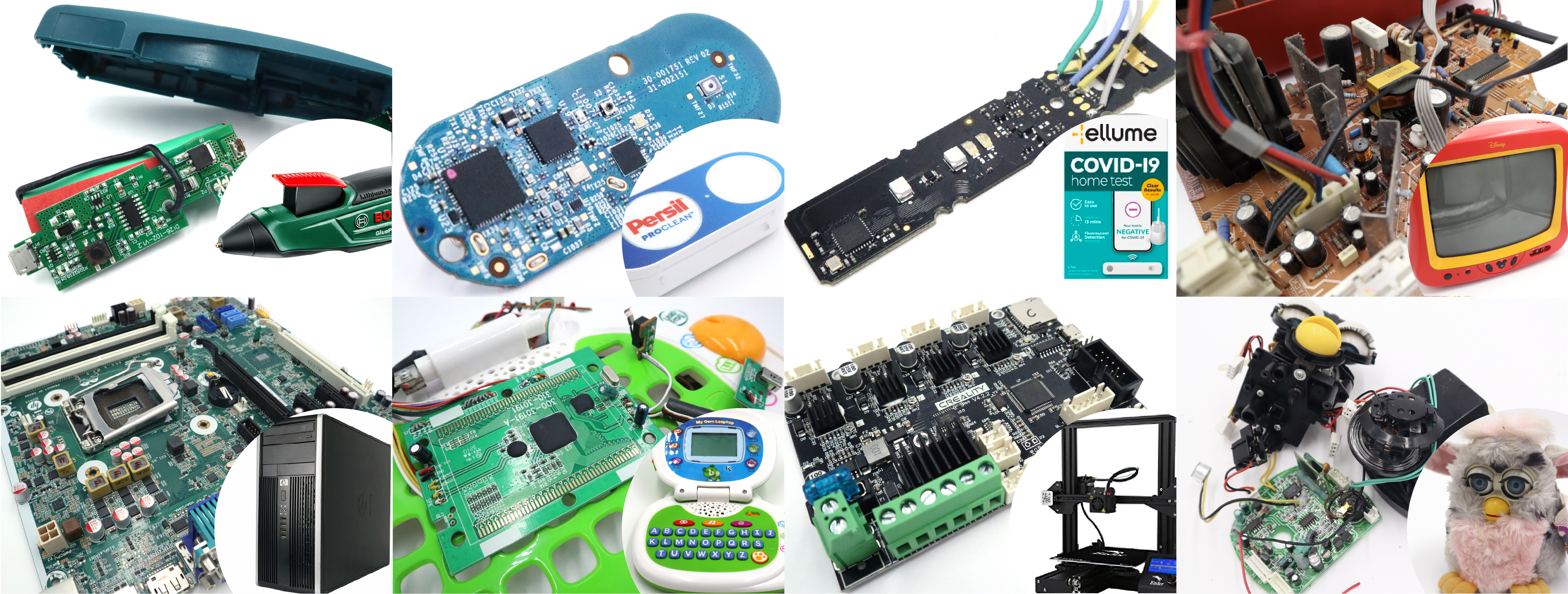Team: Jasmine Lu, Beza Desta, K D Wu, Romain Nith, Joyce Passananti, Pedro Lopes
In this paper, we explore how electronics design tools could support processes of recycling electronic components from e-waste during the design process. Inside any device that might typically become e-waste, one can find dozens to hundreds of reusable components. Despite the abundance of components in e-waste, existing electronic design tools assume users will buy all components anew. To tackle this, we created a tool called ecoEDA that facilitates the process of reusing electronic components from e-waste during the design process through integration with KiCad. We released this tool as open source, showcase several projects made with e-waste, and also ran a user study with the tool. This paper was presented as part of the UIST2023 proceedings and can be found here.

Paper Abstract.
The amount of e-waste generated by discarding devices is enor- mous but options for recycling remain limited. However, inside a discarded device (from consumer devices to one’s own prototypes), an electronics designer could fnd dozens to thousands of reusable components, including microcontrollers, sensors, voltage regulators, etc. Despite this, existing electronic design tools assume users will buy all components anew. To tackle this, we propose ecoEDA, an interactive tool that enables electronics designers to explore recycling electronic components during the design process. We accomplish this via (1) creating suggestions to assist users in identifying and designing with recycled components; and (2) maintaining a library of useful data relevant to reuse (e.g., allowing users to fnd which devices contain which components). Through example use-cases, we demonstrate how our tool can enable various pathways to recycling e-waste. To evaluate it, we conducted a user study where participants used our tool to create an electronic schematic with components from torn-down e-waste devices. We found that participants’ designs made with ecoEDA featured an average of 66% of recycled components. Last, we refect on challenges and opportunities for building software that promotes e-waste reuse.



